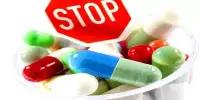In a clinical research, people with severe alcoholism were able to stay off alcohol for longer when they were given low doses of ketamine paired with psychological counseling. The University of Exeter led the Ketamine for Reduction of Alcohol Relapse (KARE) experiment, which was supported by the Medical Research Council.
The phase II experiment is the first of its type, examining whether a modest dose of ketamine, when combined with counseling, could help prevent people from swiftly relapsing to heavy drinking after quitting. AWAKN Life Sciences, a biotech business, has licensed the therapy from the University of Exeter for use in their clinics and collaborations. In addition, the University of Exeter and Awakn have inked a deal with Devon Partnership NHS Trust to investigate the NHS’s readiness for ketamine-assisted psychotherapy.
The trial was initiated in response to preliminary findings that regulated ketamine therapy can lower the number of relapsed alcoholics. There are currently few effective therapies for severe alcoholism, which has a terrible influence on people’s life. The KARE experiment was the first in any mental health situation to test ketamine with and without therapy.
The study, which was published in The American Journal of Psychiatry, comprised 96 patients who had alcohol problems and were abstinent at the time of the trial. The researchers discovered that those who received ketamine in conjunction with therapy were entirely sober for 162 of 180 days during the six-month follow-up period, representing 87% abstinence. This was much greater than in any of the other groups, indicating that the therapy may also show promise in terms of preventing recurrence. This group was more than 2.5 times more likely than the placebo group to remain entirely abstinent at the end of the experiment.
The KARE trial is an important step toward investigating a novel way to meeting the enormous unmet treatment need associated with alcoholism. The research suggests that ketamine therapy could be one method for reversing the alcohol-related harms that so many people have encountered.
Professor Anne Lingford-Hughes
The researchers also discovered some evidence that ketamine and counselling could help people quit drinking for good after six months, though the results were mixed. Patients who received ketamine had decreased depression and greater liver function after three months, regardless of whether it was paired with therapy or not.
Professor Celia Morgan of the University of Exeter, the study’s lead author, stated: “Alcoholism can ruin people’s lives, and we urgently need new approaches to help them quit. We discovered that regulated, low-dose ketamine paired with psychological treatment can help patients stay alcohol-free for longer than a placebo. This is quite encouraging, usually three out of every four persons who quit drinking return to heavy drinking within six months, so this outcome shows a significant improvement.”
Prior to the research, individuals drank every day, ingesting the equivalent of 50 pints of strong beer each week on average (125 units). Over the course of the six-month trial period, participants given ketamine and therapy drank more than the advised guidelines five times on average. This reduces the chance of death from alcohol-related issues from one in every eight to one in every 80.
Professor Morgan stated, “The number of alcohol-related deaths has more than doubled since the epidemic began, implying that novel treatments are more urgently needed than before.” Previously, there were some reservations about administering ketamine in alcoholics due to liver issues, but this study shown that ketamine is safe and well-tolerated in clinical settings. In fact, we found liver function improved in the ketamine group due to them drinking much less alcohol.

“This was a phase II clinical trial, which means it was undertaken in people primarily to test the treatment’s safety and practicality.” We now have early evidence that this treatment is successful. “We now need to conduct a larger trial to determine if we can confirm these results.”
“We absolutely do not advocate using ketamine outside of a clinical setting. The risks of street drugs are evident, and the combination of a low dose of ketamine and the appropriate psychiatric therapy, as well as the competence and support of clinical personnel, is critical. This combination demonstrated benefits that were still visible six months later in a group of persons for whom many conventional therapies just did not work.”
Professor Anne Lingford-Hughes of Imperial College London is one of the study’s co-authors. She stated: “The KARE trial is an important step toward investigating a novel way to meeting the enormous unmet treatment need associated with alcoholism. The research suggests that ketamine therapy could be one method for reversing the alcohol-related harms that so many people have encountered.”
Researchers conducted comprehensive interviews with 12 KARE trial participants and presented their findings in a separate publication published in Frontiers in Psychiatry.
Merve Mollaahmetoglu of the University of Exeter, the study’s lead author, stated: “People’s experiences with ketamine infusions imply that the substance provides a new perspective that may be useful in psychiatric therapy. Ketamine causes a sense of being outside of your body, which some claim might create a ‘observer state’ similar to that described in mindfulness, which may help patients take a step back and analyze their thoughts and emotions. This event, according to participants, helped them modify their relationship with alcohol.”
Thinking less about their own problems and feeling more connected with the world around them seemed to affect one of the trial participants’ relationship with alcohol: “The sense of oneness I felt, as well as the sense of moving away from worrying about trivial matters, has been beneficial in terms of improving my relationship with alcohol. Because I believe I used alcohol as a form of self-medication as well as a blocking and avoiding method. And I believe that knowing that those concerns are less widespread, or at least less significant, makes me less tempted to drink.”
Many of the participants considered the combination of ketamine and treatment as advantageous. According to one interviewee: “Not only did I have a life-changing and mind-altering event, but the therapist also introduced me to some new ideas that caused me to think differently. I believe it is critical that when you are split open in such an extreme and life-changing way that you are given new thoughts and that someone provides you something to refill that, so you actually change things.”
Anthony Tennyson is the CEO of AWAKN, a biotechnology firm that has purchased the rights to the research and is developing and delivering psychedelic treatments (medicines and therapies) to treat addiction. He stated “We are overjoyed to find such hopeful developments in a field of treatment that has been static for so long, leaving so many individuals with few or subpar options. Because ketamine is now a licensed pharmaceutical, we can now provide this treatment in our clinics and through partnerships, which represents a significant shift in the alcohol addiction treatment sector.”
Patrick Chinnery, Clinical Director of the MRC, stated: “More research is needed, but it is encouraging that MRC funding for this project has permitted these preliminary findings, which could lead to novel strategies to treat addiction. Funding this type of clinical neuroscience research in people is critical because it will aid in our understanding of addiction and the development of more effective medicines to prevent relapse.”















